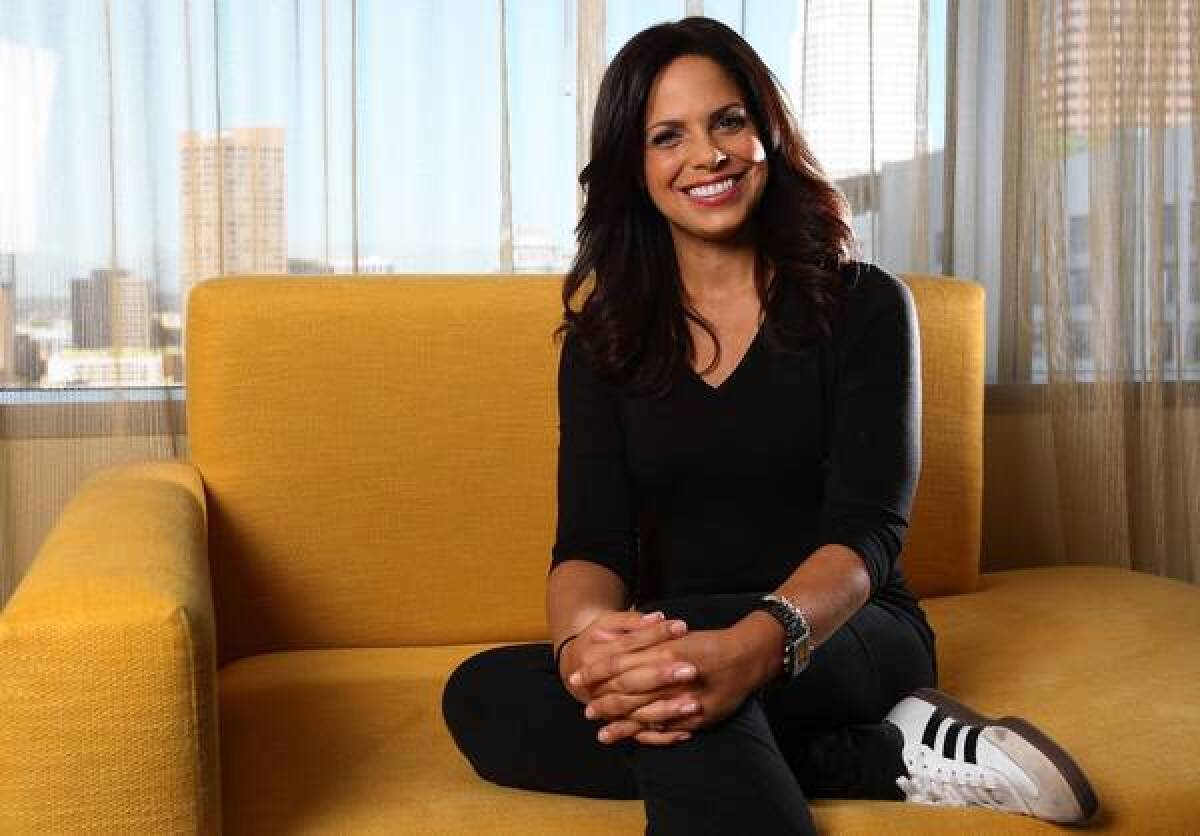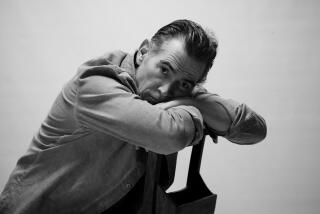Journalist Soledad O’Brien aims to enlighten on ‘Dream School’

- Share via
Former CNN anchor Soledad O’Brien turns teacher in Monday’s installment of “Dream School,” the Sundance Channel’s series about a class of high school dropouts inspired by a celebrity faculty. It’s part of her new matrix of journalistic gigs under her Starfish Media Group production company.
Let’s start with “Dream School.” Why did you participate in the show, and what did you hope to accomplish?
I love the idea of being able to make [school] seem relevant to a bunch of 16-year-olds who have lost faith in the education system. I’m focused on it in a lot of the work that I do, the documentaries that I do and the foundation that I run. I fully get that young people need to have a good education in order to create the life they want. My job was to explain to them the things I like about what I do — there are interesting gigs on the other side of education.
In a faculty meeting, you asked whether the students on the show were being coddled. Were they?
I don’t think they were being coddled. I think as a parent — I have four kids — you’re constantly trying to figure out that line: When do I push, and when do I hug? That’s probably the toughest thing about being a parent:
PHOTOS: Hollywood backlot moments
Tell me about your foundation.
The Soledad O’Brien and Brad Raymond Starfish Foundation I founded with my husband after Hurricane Katrina. We saw so many young women — specifically women — solid kids who really wanted to go to college but had no way to do so. We have 25 girls [from around the country] that we sent to college and one off to law school. A lot of foundations will give you a check for college. We help get them through college financially, and we don’t just ditch you if you don’t keep up your GPA. If you’re struggling, then you get more help.
You’re known for being a tough interviewer. What do you think of press coverage of Congress and the government shutdown?
I haven’t watched a lot of TV coverage; I’ve been up in Cambridge as a visiting fellow at Harvard [Graduate School of Education] this year. But I do wish sometimes I were there grilling some of these Congress people, because they do need to be asked the tough questions. It’s like crazy town right now. You can’t call it like a horse race. There has to be context.
One of your new outlets is Al Jazeera America. What attracted you to the network?
I think what they’re interested in is straight news. The first piece I did for them was an interview with [Haiti’s ex-dictator Jean-Claude] “Baby Doc” [Duvalier] about whether or not he’s going to face trial for human rights abuses. I think it’s a great outlet for thoughtful pieces that don’t need to be twisted and spun. And to have eight minutes is unheard of in TV news. I like reporting a lot on social justice and looking at people who are being left out of opportunity, so it’s been a great opportunity to tell those stories, which I don’t think get told a lot. And of course I’m here in L.A. doing a shoot for [“Real Sports With Bryant Gumbel” on] HBO that I think will air at the end of this month.
FALL TV 2013: Watch the trailers
You knew Bryant Gumbel at NBC?
I did, yeah, in the can-I-get-you-more-coffee-Mr. Gumbel kind of way.
Do you think the kinds of stories you do for Al Jazeera are less possible with American news organizations?
I don’t think that at all. For me, it was this model that I was trying to create. Al Jazeera was an important part of it, and HBO “Real Sports” and NatGeo have been an important part of it. You have to take the things that you do well and find partners who are interested in working with you. Where can I tell my docs? CNN is a great partner for that, Sundance a great partner for doing things focused on education. I’m talking to folks at ABC “This Week.” We create a lot of content, and we own that content, and that’s very important. I own the “Black in America” docs, the “Latino in America” docs and the bulk of the 30 docs I did for CNN, I own the content.
How do you feel about reports that the main funder of Al Jazeera, the royal family of Qatar, has also funded Hamas, the Al Nusra Front and Al Qaeda-linked groups? Do those reports challenge Al Jazeera’s credibility here?
The main thing for me is journalistic integrity. We can dig into who owns what; at the end of the day, as a journalist, what I’m really interested in is what is the directive in the newsroom for the work that we’re doing?
Were you promised there would be no pressure at the top?
I’ve never had a journalism job that I hadn’t made sure that I was completely independent, and I have full editorial control of all the deals that I’ve done. Journalistic integrity is everything.
More to Read
The complete guide to home viewing
Get Screen Gab for everything about the TV shows and streaming movies everyone’s talking about.
You may occasionally receive promotional content from the Los Angeles Times.






